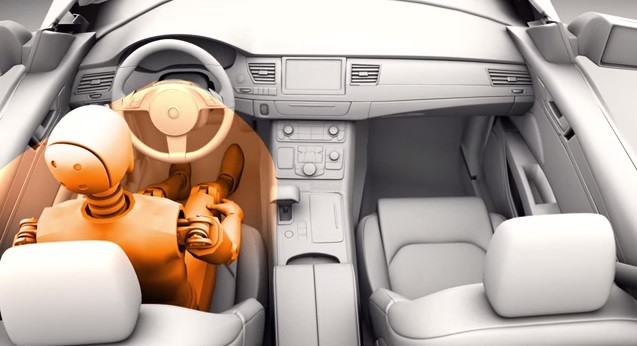Cars of the future will refuse to start when the driver is drunk

Cars of the near future will stop themselves from working if they detect too much alcohol in the driver's bloodstream, using sensors which discreetly monitor their breath.
As well as analysing a driver's breath, the system will also use a sensor embedded into the ignition button or gear stick to take a second reading by shining light through the driver's finger.
Developed by the National Highway Traffic Safety Administration (NHTSA) in the US, the technology could be fitted to almost any vehicle and is expected to be available as an optional safety extra - like automated emergency braking - on new cars in the coming years. The system can also be tuned based on the differing drink-drive limits in each country. It can also bet set to zero-tolerance for younger drivers.
Using the car's airflow and climate control systems, the driver's breath can be directed towards a sensor located either in their door, or on the steering wheel column, preventing the system from mistakenly monitoring the breath of a passenger. The ratio of carbon dioxide to alcohol is measured and a result is produced in less than one second; if they're over the limit, the car will not start.
A second system mounted to the ignition button or gear stick shines light through the driver's finger and monitors what is reflected back. Light reflected back from the finger of a drunk driver would differ from a sober one, so this can also be used to immobilise the car if they're over the limit.
Presenting the prototype, NHTSA administrator Mark Rosekind said: "There is still a great deal of work to do, but support from Congress and the industry has helped us achieve key research and development milestones. [The system] has enormous potential to prevent drunk drivers in specific populations such as teen drivers and commercial fleets, and making it an option available to vehicle owners would provide a powerful new tool in the battle against drunk driver deaths," reports The Detroit News.
Rosekind, who is working with the 'Big Three' US car makers (General Motors, Chrysler and Ford), expects the system to be tested in the next five years and for fleet managers to be the first to install it in their vehicles, before seeing expansion into cars bought by the general public.
But not everyone is convinced by the system. Sarah Longwell, director of the American Beverage Institute, said: "Voluntary passive alcohol sensors...will do nothing to keep these dangerous drivers off our roads. Instead, it will simply stop many responsible social drinkers who have a glass of wine with dinner from starting their car."
But there are many hurdles in place before such a system can be rolled out with absolute certainty that it will work. Car makers will want to know that sober drivers won't be prevented from driving by their drunk passengers - a particularl problem for taxi drivers - and that a drunk driver can't trick the system by sitting a sober person in the driver's seat until the car is started.
© Copyright IBTimes 2025. All rights reserved.






















